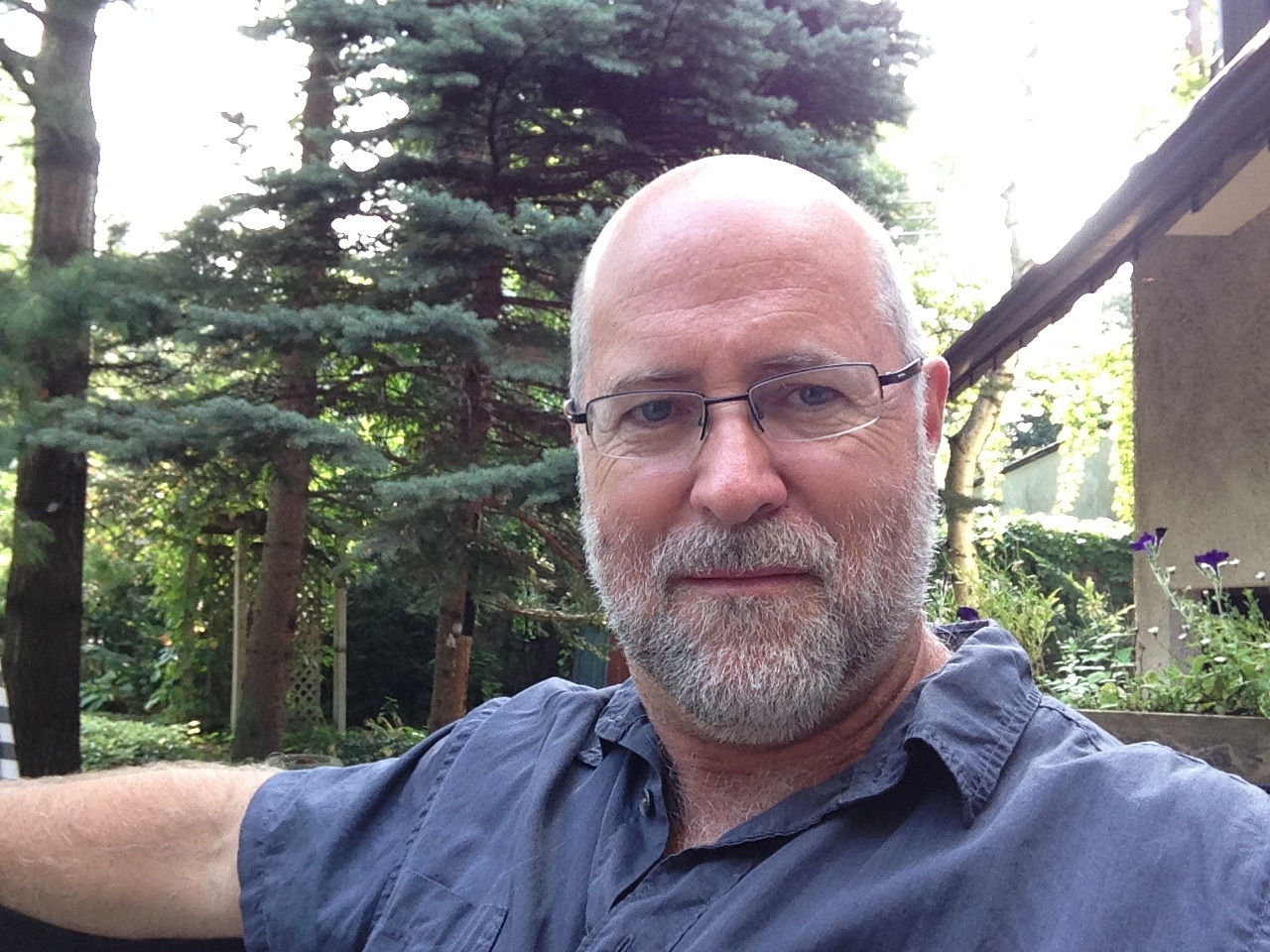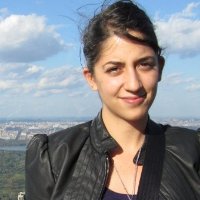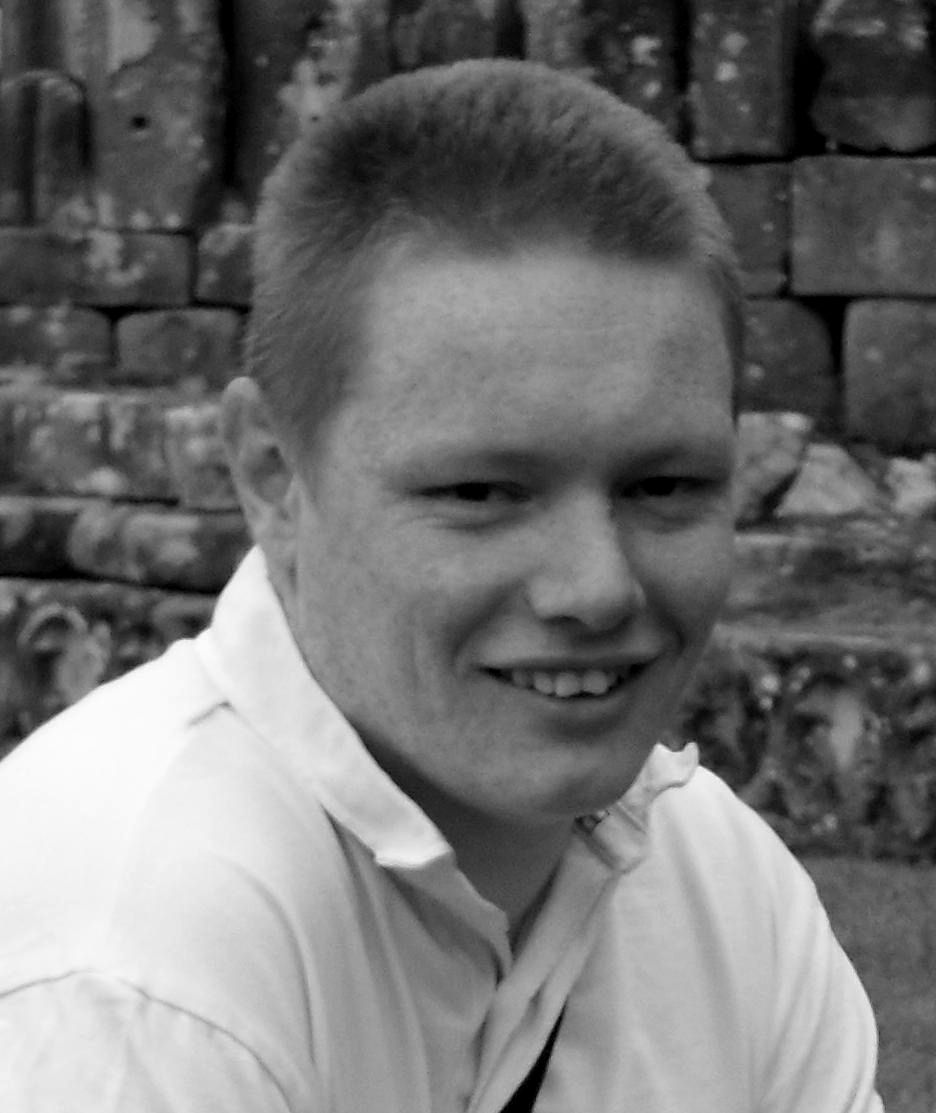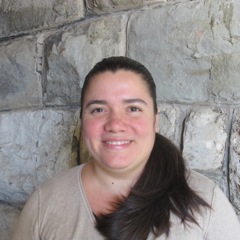The (temporary) Advisory Committee was replaced by the Board of Directors after the Constitutive Assembly on 9 July 2015.
To proceed to the Board of Directors page, click here.
The Advisory Committee was formed by election of its members on the 4th November 2014 (see announcement).
The Advisory Committee’s mandate is to represent the members and to guide the initial development of Climanosco under the leadership of Michel Bourqui. This mandate is temporary and once Climanosco‘s initial development will be accomplished, this committee will be replaced by an elected Executive Committee with executive powers.
Climanosco‘s Advisory Committee is strong of eight members; four are experienced climate scientists (climate scientist members) and four come from a different field (non-climate scientist members). We are very proud to present them hereafter (alphabetic order).
Cassandra Bolduc
My name is Cassandra Bolduc and I am a PhD candidate in Physics at University of Montréal, Canada. I am studying the variability of the solar spectrum in the ultraviolet and of the total irradiance. I also had the chance to be co-supervised by Dr. Bourqui and to study the influence of solar variability on stratospheric chemistry. Though I do not consider myself a climate or atmospheric scientist, I am sure that my background in physics and solar-terrestrial relations would be useful to the Climanosco community. I can easily put myself in the position of someone from the public because I am not a specialist of atmospheric sciences or climate, while I am able to understand the science behind.
I see Climanosco as the future reference for anyone looking for answers that are clear while being backed up by scientist. The different point of views would be reflected, so that the general public will know how science works and how theories and hypothesis are verified. This would help, I think, showing that discussions is part of the scientific method and that our knowledge is always evolving. I imagine all points of view being represented, proportionally to their popularity among the scientific community. I also wish that the public will get a better understanding of how complex the atmosphere and the climate are, so they know how difficult it is to predict their future, but also to get them interested to know more about them. I hope that the public will develop a sense of responsibility by knowing how our lifestyle can affect climate change, and that this journal will become a reference and a source of information for our policy makers.


Paul Charbonneau
I am an astrophysicist by training, a solar physicist by practice, and currently hold a Faculty position in the Physics Department at the University of Montreal, Canada. For now close to 25 years I have carried out research on the physical mechanisms driving solar magnetic activity. More recently I have become interested in modeling the variations of the solar radiative output across changing levels of magnetic activity levels, and quantifying the impacts such variations may have on the Earth’s upper atmosphere. My interest in climate change stems naturally from these research interests, but also from deeply held concerns regarding the future well-being of my children, and their children’s children’s children.
The debate regarding the importance of human impact on climate may be deemed closed by the vast majority of climate scientists, but policy makers as well as the general public continue to be exposed to a flow of confusing, contradictory claims, more often than not driven by agendas that are primarily political. Of particular importance, in my opinion, is to explain why it is still not yet possible to quantify the impact of solar activity on climate in a physically sound manner. In science there is nothing wrong with saying “We don’t know”, but it is our duty to explain WHY we don’t know. Climanosco appears to me an excellent vehicle towards achieving that goal.


Marie Charrière
I come from Switzerland but now I live in The Netherlands. I am doing a PhD there! I am working on visual risk communication. This means that I am trying to find the best solutions to communicate natural hazards such as floods and landslides to the population using visualization! Maybe this description is a bit technical. To be simple to goal is to help people to know how to react if such disasters occurs. I hope to contribute at least a little bit to make people safer! I chose this education because it requires to be in contact with people, getting to know them and understand their culture. And I also like to do that in my free time: my favorite activities are traveling the world and meet new people, read novels that will take me places where I cannot go physically, keep informed on what’s going on in the world and see as much as art as possible to access emotions that cannot be transmitted only with worlds!
Climanosco is a very important initiative because it aims a bridging several gaps. The most important to me is to make climate sciences accessible to the public. While talking to my entourage and during my PhD field work, I realized that first climate change is not understood properly, secondly that people do not understand why scientists do not provide unequivocal answers to their questions about the topic. Therefore I imagine Climanosco as a website that would provide understandable scientific works for the public and would answer public questions I also imagine it as a website that would benefit to the scientists by providing a peer reviewed process of a high quality and give them the incentive to participate more actively to the public outreach of this topic.


Daniel Hill
I am an academic in the School of Earth and Environment at the University of Leeds, UK. Trained as a physicist, I use computer models to study the evolution of the climate through the geological past. I specialise in simulating warm climates of last 50 million years, particularly focussing on the causes of climate and Earth system changes. On these timescales geological changes are just as important as greenhouse gases, but climate models fail to capture the scale of warming without greenhouse gas increases. I am also trained in glaciology and combine models of ice sheets and icebergs with climate models, to understand the connection between warm periods of the past and ice sheet changes. Through this research we can understand the workings of climate in warmer than modern, high CO2 worlds.
My vision for Climanosco is that it would be a key tool in the communication between climate scientists and the general public. That it would enable scientists to communicate their research simply, to a general audience, without the need for tabloid journalism. That the public would have a reliable, peer-reviewed source of cutting-edge climate science, which is written without the complex language of most scientific journals and accessible to all. That those who have genuine questions about climate issues and the state of current climate science would have a trusted source of information and a forum for raising their questions. That teachers could use the latest results from climate scientists around the world within the classroom, safe in the knowledge that they are using a recognised and reliable source. I hope that Climanosco will become more than a scientific communication journal and find ways to incorporate creative projects, provide the spark for citizen science and engage a whole new community with climate science.


Angélica Lòpez Gladko
Angélica is a trained Environmentalist with additional education in International Development Cooperation. She has collected hands-on experience in International Cooperation and Climate Change Adaptation in multicultural Environments at community, country and regional levels. Having lived in Nicaragua, Russia, Switzerland and Cuba has allowed her to develop important intercultural sensitiveness and strengthen her language skills. Her life main goal is being happy while contributing to a more sustainable society.
Angélica sees Climanosco as a Global Platform of dialog and solution – oriented discussion between Scientists, who bring knowledge from their Research, and non Scientists, who bring concrete questions about and experience in Climate Change. This platform will be a contribution to find balance between our way of living and the Climate.

Enrique Loubet
I am a mathematician with a strong interest in economics. I have a Bachelor in Mathematics and Physics from the national university of Mexico (UNAM), a Master and PhD in applied mathematics from the Courant Institute (NYU), postdoc experience in university of Zurich (UZH), a Master in advanced quantitative mathematical finance from the federal technical university of Zurich and Zurich university (ETHZ-UZH) and worked for close to 5 years for a big reinsurance firm in risk management. I am a scientist and concerned individual with an existential need to understand, nurture and disseminate universal values and scientific ideas. I want to join scientific peers and work together to contribute to disseminate scientific ideas and understanding, to raise public and governmental awareness of scientific facts and their implications so as to support and push for rational change and action for the better.
I enjoy meeting and working with interesting open minded people who are also highly concerned and knowledgeable about the prescient challenges of our time such as Climate Change. I really think this—as well as most of the other major challenges of our time—demand active participation of each one of us. Understanding and coping with these problems demands a multidisciplinary approach and close collaboration of experts to integrate findings and viewpoints. I want to work with fellow scientists and thinkers to better understand these problems, to raise awareness about what is ‘true’ from what it is not and to identify and propose possible solutions. I want to be an advocate, to communicate and disseminate scientific facts about climate change, educate and sensitise private and governmental institutions and more importantly the general public. And in this way, I want to help Climanosco become a respected, trusted and influential forum to which people may look out to inform themselves, get the facts right and progressively create momentum for a positive and rational change for the better.

Philippe Roy
I work in the field of climate model analysis, specializing in uncertainty of simulated extremes by regional climate models. I presently work at Ouranos in Montréal, a research consortium that focuses on two main themes: Climate Science and Vulnerabilities, Impacts and Adaptation to climate change. My present research focus is on the application of probabilistic climate scenarios for the assessment of various impacts and adaptation studies.
Climanosco strive to become the main source of information for the main questions asked by the general public, journalist, politician and early career scientist. To do so, Climanosco will provide factual resources about the main climate themes (“What is Climate Change?” “How Climate Change will affect my life?” “What are the adaptation needed?” “What adaptation technique have been used elsewhere?”), as well as the impacts of climate change on the local population or stakeholders. Moreover, Climanosco should strive to become a hub for general (or detailed) publicly available climate scenarios relevant for local population around the world. My vision for Climanosco is a place where we can get the information, the climatic data, the climate scenarios and some useful adaptation ideas at the same place.
Barbara Winter
My undergraduate degree was in astrophysics but for graduate work I returned to earth and studied the physics of the atmosphere. My research over the last 20 years has focussed mainly on the large-scale motions of the atmosphere and oceans, and on the long-term changes that can be induced in these motions by changes in, for example, the carbon dioxide content of the air. I have also investigated how sunlight is transferred through layers of aerosol particles in the air, and how heat is transferred through sea ice from the ocean to the atmosphere. I have worked as an instructor for undergraduate courses on weather, climate and oceanography, and have always enjoyed teaching. At present I am a physical scientist with Environment Canada.
The awareness of how humans are impacting the climate system has been growing among the general population, and with it an increased understanding that we are ultimately damaging our own quality of life if we damage the climate system: people want to know about climate science because climate affects us all personally. My vision for Climanosco is that it be a forum where those with questions about the basic science governing climate change can interact with those who have expertise in the physical sciences that make up climate research. My long-term vision is to remain adaptable to the evolving needs of our target audience. At the moment there is a need for accessible information in a common language, and I hope to learn what concerns and questions non-specialists have.
![]()

![]()

![]()

![]()

![]()
![]()
